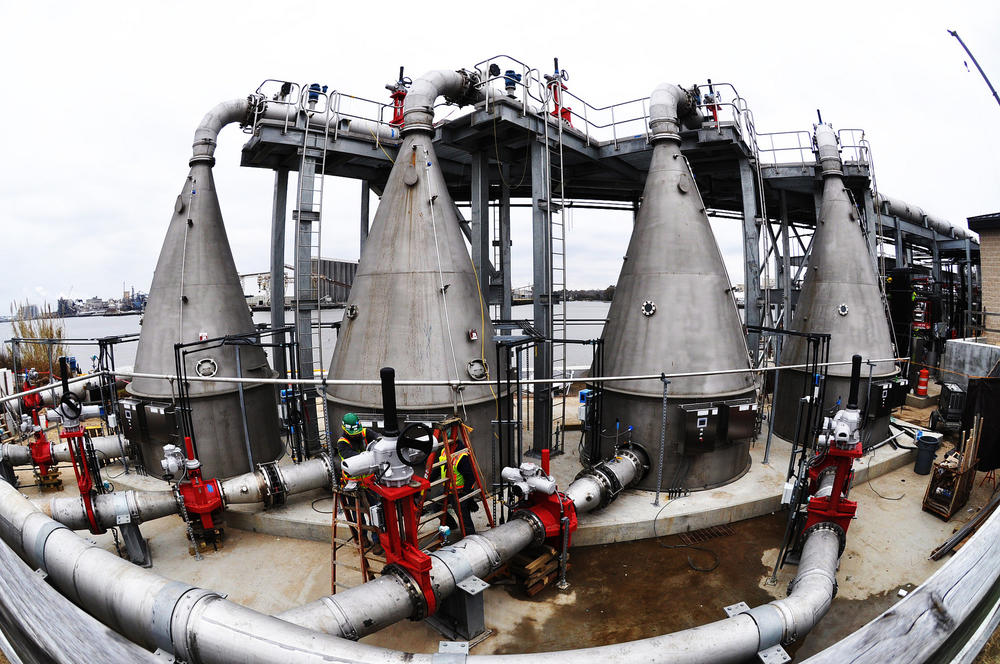Section Branding
Header Content
Additional Federal Funds Keep Savannah Harbor Expansion On Track
Primary Content
The Army Corps of Engineers this week announced additional funding for the expansion of the Savannah harbor, bringing this year’s total to about $85 million. Officials say the money will keep the project on schedule.Funding from the Army Corps of Engineers will help keep the harbor expansion on track.
Georgia funded its portion of the $973 million Savannah Harbor Expansion Project up front, which allowed work to get underway.
Federal money has been slower to arrive. But this year, Congress budgeted just under $50 million for the project. While that money is awaiting Senate approval, the Corps of Engineers has set aside another $35 million.
“It gives us the optimal construction speed," explained spokesman Russell Wicke, "enabling us to construct the project as fast as physics will allow.”
Wicke said the project needs between $80 million and $100 million to keep going at that pace, though he stressed those figures are "approximate" and can vary.
"But if it falls a lot short then we have to wait to advertise projects," he said.
The deepening is already done in the outer channel - the part in the ocean and the mouth of the river.
Work is nearly complete on one of the mitigation measures required to offset the environmental impact of the deepening: a dissolved oxygen injection system to maintain the oxygen level in the river. Once it's up and running - and tested - the Corps can move forward with awarding a contract to dredge the river itself.
"We can't start inner harbor deepening until we've proven that we can put oxygen back into the river," Wicke said.
Another mitigation measure will also be finished soon. It will help the city of Savannah maintain a supply of fresh water even when river levels are low.


